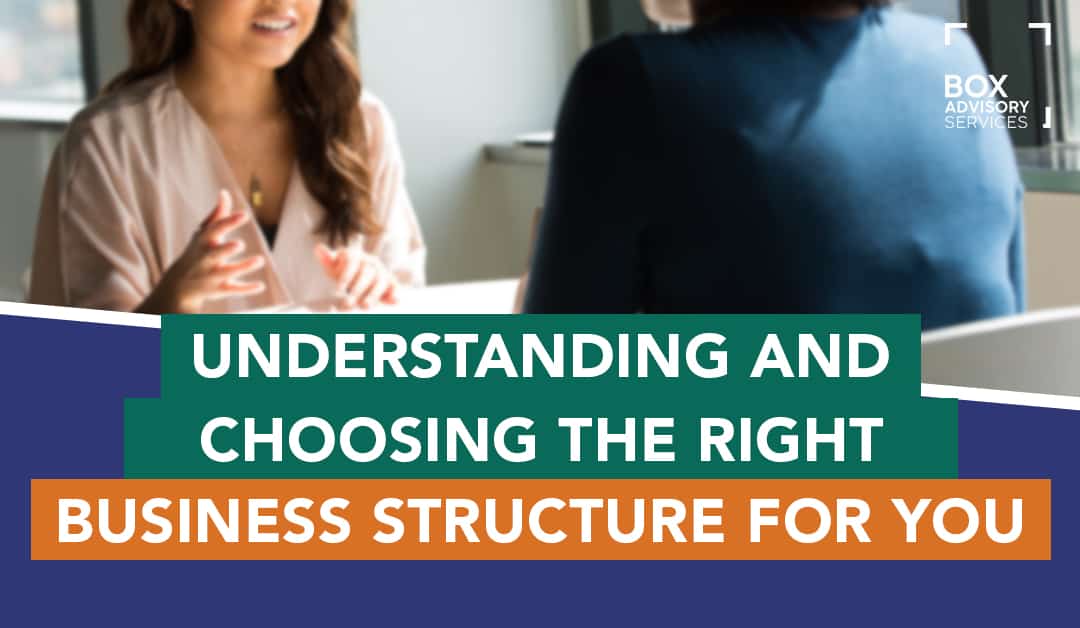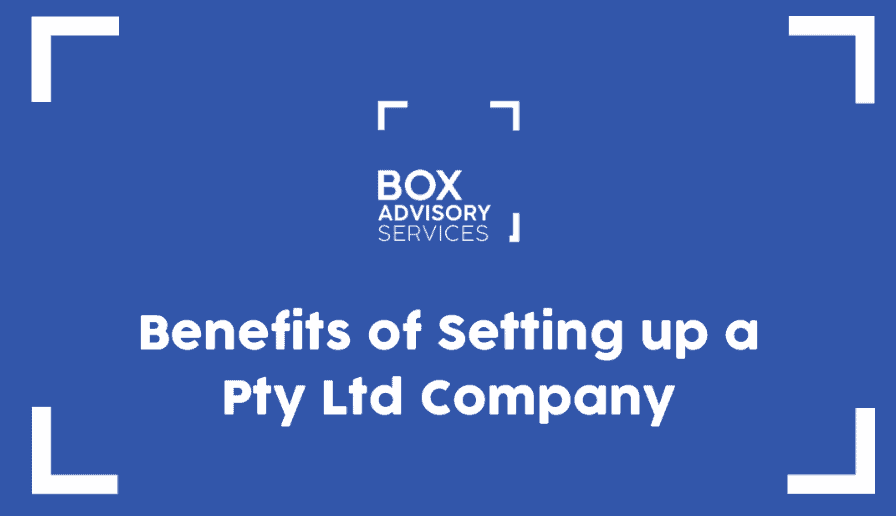
BY
|
Understanding And Choosing The Right Business Structure For You
Starting a business in Australia is no easy task. There are so many things to think about – from what product or service you’re going to offer, to how you’re going to market it and define who your target customer is. One of the most important decisions you’ll make when starting your own venture is choosing the right business structure – which is one of the most important elements of all.
In essence, each structure has its own benefits and drawbacks, so choosing the right one is crucial for your success. Beyond that, this decision will affect how your business is run and taxed, as well as how your assets are protected.
So, in this blog post, we will discuss the different business structures available to Australian companies and guide you through how you can choose the most appropriate one for you.
The Different Types of Business Structures in Australia
Typically, there are four different types of business structures you can choose between for your venture:
- Sole Trader
- Partnership
- Company
- Trust.
Below, we discuss how each of these different options carries various levels of responsibilities and obligations.
What Does a Sole Trader Business Structure Entail?
Setting up your venture as a sole trader is by far the simplest path to take compared to other business structures. This is because, as a sole trader, your business operates under your personal name, so it is relatively cheap and uncomplicated to get the ball rolling.
However, you will need to consider the fact that you will bear full responsibility for any of the business’s liabilities. That is, if your ventures don’t succeed, any creditors will have a claim to your personal assets for unpaid business debts.
Another thing to factor into your business structure decision is that a sole trader’s income is taxed at their personal marginal tax rates. In other words, you’ll need to submit all your assessable business income on your personal income tax return. So, if your marginal rate is high, you may want to consider alternative business structure options available in Australia.
Note that if your business experiences growth and success, you are able to relook at your structure and change it to a new one that better suits your new financial circumstances.
How Do Partnership Business Structures Work?
A partnership is where two or more people go into business together. Like with a sole trader structure, the process of establishing a partnership is relatively straightforward and cost-effective.
However, a partnership is also not considered a separate legal entity, so the partners have personal liability for any of the debts that the business incurs throughout its operations.

There are also minimal reporting requirements, but unlike a sole trader structure, partnerships must lodge a separate tax return – although the partnership itself doesn’t pay tax. All the profits (or losses) are distributed to the partners who will pay tax at their marginal tax rate instead.
What Does a Company Structure Offer?
Of the four, a company is the most common business structure in Australia. This is because a company is its own legal entity. In other words, the assets and company debts are separate from that of the company’s shareholders and directors.
In most cases, liability is limited and will not extend to the shareholder’s personal assets when the director’s duties and obligations are met and the business operations were not operated in a fraudulent manner. So, a company structure is the better option for asset protection – especially if you’re venturing into high-risk operations.
Additionally, there are significantly more financial reporting and legal obligations that come with setting up a company, such as lodging a separate tax return. However, if you’re looking to set up a tax-effective business structure, you’ll be happy to know that all company profits are taxed at a flat rate of 25% in FY2022.
Establishing Your Business Through a Trust
Should you decide to opt for a trust business structure, a trustee will operate the venture on behalf of the trust beneficiaries. The appointed trustee can either be company or one or more individuals. Appointing a corporate trustee is generally better from an asset protection to separate the legal entities.
The trust must have a tax file number and lodge a tax return similar to the company. However, like with a partnership, the trust itself doesn’t pay tax. Instead, the taxable income is distributed to the beneficiaries, who will be liable to pay income tax on their share of the distribution.
If you decide to set up a discretionary trust, the trustee will have the flexibility to distribute the funds to its beneficiaries which may reduce the overall taxes of your business group. However, a trust cannot retain profits, if the income within the trust is not distributed at the end of the financial year, the trust can face tax liability of up to 45% plus 2% of medicare levy for FY2022.
Deciding On The Right Business Structure For Your Needs
Now that you know your options, you’ll need to weigh up a variety of factors when deciding which structure would be best suited for the business’s current financial circumstances and future goals. You should also consider things like:
- your risk profile;
- the type of business you’re going to operate;
- who else is involved in this business venture;
- what your plans for growth are;
- the tax advantages and implications of the business structure; and
- your ability to meet the initial and ongoing cost requirements (such as annual ASIC fees and traditional accounting fees).
Table of Factors You Should Consider (Figures are relevant to FY2022)
| Sole Trader | Partnership | Company | Trust | |
| High Initial and Ongoing costs | No | No | Yes | Yes |
| Separate Legal Entity | No | No | Yes | Yes |
| Asset Protection | None | No | Yes | Limited (depending on the trustee) |
| Tax Rate | Marginal Tax Rate | Each Partner’s Marginal Tax Rate | Flat Rate of 25% (this rate changes annually) | Beneficiaries marginal rate (or 45% if income isn’t distributed) |
| Easy to dissolve or sell | Yes | Yes | No | No |
| Ability to raise capital | Difficult | Difficult | Easy | Depends |
| Ability to change business structures | Easy | Moderate | Difficult | Difficult |
How Can Box Advisory Services Help With Setting Up Your Business Structure in Australia?
Through our combined decades of services, our small business accountant team can help you unearth the most effective and legal accounting tax strategies to achieve the best outcome for you, your family, and your small business.
We provide proactive and strategic guidance for small business owners regarding choosing the right structure for their business, including:
- setting up a business plan;
- minimising your risk;
- protecting your assets;
- Advising on business operations and budgeting;
- establishing profitability and cash flow plan;
- determining sound exit strategies; and
- creating a tax-effective group structure.
We work closely with our clients to identify their goals and develop the plan that best suits them. With over 20 years of experience in the industry, we have extensive knowledge about what it takes to succeed. Our goal is to help you grow your company’s financial stability through effective budgeting, forecasting, cash flow management, income taxes, and audits.
Our team of business and tax accountants is committed to providing exceptional service, innovative solutions, comprehensive reporting solutions, timely project completion, and highly competitive pricing.
Key Takeaways
In the end, choosing the right business structure is an important decision that will have a significant impact on your success. So, it’s crucial that you take time to explore each option and decide which is best suited for your needs and obligations.
We’re here to help with a free consultation so don’t hesitate to reach out if there are any questions about these types of business structures, and what they entail.
Contact us today to learn more about our services or schedule a consultation.
Disclaimer:
Please note that every effort has been made to ensure that the information provided in this guide is accurate. You should note, however, that the information is intended as a guide only, providing an overview of general information available to contractors and small businesses. This guide is not intended to be an exhaustive source of information and should not be seen to constitute legal or tax advice. You should, where necessary, seek a second professional opinion for any legal or tax issues raised in your business affairs.



